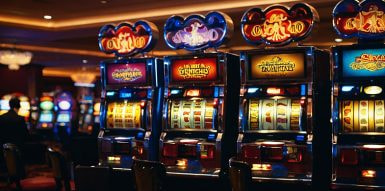Gambling Addiction – What Causes It?
There are different ways that a gambling or any other addiction could be triggered. Here are a few examples:
- People often dive into gambling after a big event in their life (death in the family, surgery gone wrong, loss of a job)
- Playing at the casino could easily turn into an addiction when a person first feels the thrill of winning – specific words and sounds, like the ringing of a slot machine, could turn into triggers.
- It is reported that some prescription drugs could make a person gamble excessively. We have mentioned the most popular drugs that trigger gambling addiction in a separate article, where you will find more detailed information.
As any other addiction, gambling addiction is an impulse-control disorder. This means that you cannot control the impulse to gamble, and you do it repeatedly for a long period of time. Even if you stop gambling for a while, the addiction could easily come back out of curiosity or if something that you see/feel reminds you of this disorder. This is what usually a lot of people experience, and we’ve shared some of the gambling addiction horror stories in another article. We will later discuss how gambling addiction could be treated and what are some of the popular methods professionals use. Before that, let’s have a look at how exactly gambling disorder could affect your brain.
Gambling and Your Brain – What Turns a Player an Addict?
We came across an interesting video by BBC News, showing an experiment on how the brain reacts to different gambling activities. One of the world’s leading experts on addiction professor David Nutt shares his observations over a patient with gambling disorder. The experiment involves the patient entering an MRI scanner. The patient wears a VR-glasses-like contraption that simulates and visualises different casino games, as well as a keypad to place bets. There is a combination of high stakes and a chance of winning every 20 seconds, which are the moments when the brain reacts the most. Professor Nutt explains that there are a few phases where the brain reacts in a different way. For the sake of the experiment, the addict is shown a game of roulette, where he places bets. Here are the results:
- When placing the bet, the brain of the patient is still relatively calm. There are no harsh reactions and no changes in the moment of the bet placing.
- Next comes the roulette spin. In this moment the back of the brain activates almost immediately within seconds. There are two areas of the brain that activate the emotions of the person tested. As professor Nutt says, the areas generate the emotion of excitement whether the addict will win or not. We’ve mentioned earlier in the article and in another of our posts that gambling for some people acts like chocolate for women – it releases dopamine and endorphins, which are responsible for emotions like happiness, excitement, love, etc.
- When the patient wins the game, there is a slight difference in the brain activity. The back of the brain is active, as well as the areas that emulate emotions. One specific area is more active, which shows the sense of satisfaction of the patient.
The conclusion of the experiment is that the second and third phase are both similar – a bigger part of the brain is active and stimulates different emotions that determine the overall reaction of the player when he/she is waiting to win/winning. Professor Nutt also says:
“It’s not just the winning that counts, it’s the taking part, and the taking part repeatedly when you don’t win is as activating to a gambler as the winning.”

Other Experts Say…
According to the Association of British Bookmakers, or ABB for short, 99.5% of gamblers play responsibly. Professor Nutt’s experiment shows how the brain reacts to winning a casino game and how different regions activate within seconds. His observations a clear and go straight to the point. There are also other professionals that are studying in detail this gambling disorder phenomenon, and we’ve managed to gather a bit more information about the brain function of a gambling addict.
Johns Hopkins University
As you can tell by the title, Johns Hopkins University has a team of experts exploring behavioural habits, and they also specialise in gambling addiction. Their study claims that there is a region of the brain that plays a critical role when it comes to taking risky decisions of different kind. This study applies mainly on gambling addictive behaviour. For this experiment, the team used rhesus monkeys, as their brain structure and function is similar to ours. The monkeys had to ‘gamble’ against a computer. Every time they win, they would receive a cup of water as a prize. The monkeys had two options – choose a 20% chance of receiving 10 millilitres of water or choose 80% chance of getting 3 millilitres, which is a more secure and reliable option. The experiment shows that, as an active gambler would do, the monkeys chose the first option, regardless that they weren’t thirsty anymore.
Back To The 80s
Gambling addiction and its existence is not a relatively new topic for debates. There have been multiple tests and written studies from years ago that classify gambling addiction as a form of mental disorder. In the 1980s, the American Psychiatric Association (APA) confirmed that gambling addiction classifies as an impulse-control disorder. This was officially included in the updated version of the Diagnostic and Statistical Manual of Mental Disorders (DSM). Other types of illnesses under the impulse-control disorder category include kleptomania, pyromania, trichotillomania and intermittent explosive disorder. An experiment, like the one made from Johns Hopkins University team nowadays, showed how the different regions of the brain react when the patient wins at a game. This addictive behaviour is very similar to the behaviour of drug addicts. As time goes by and a person does drugs to feel better, he/she can adapt and build tolerance to the drug, leading to its excessive usage.
It’s Not A Game!
Gambling or any other addiction is definitely not something people should be afraid of, nor should ignore. If you or a loved one struggles with gambling addiction, seek help as soon as possible! There are a lot of online and land-based facilities that tackle gambling disorders and could help anyone. Thank you for stopping by our blog! We hope you found some interesting and useful information. Make sure you follow us on our social media and let us know if you would like us to write more mental-health-related articles. And, a friendly reminder – play responsibly!



